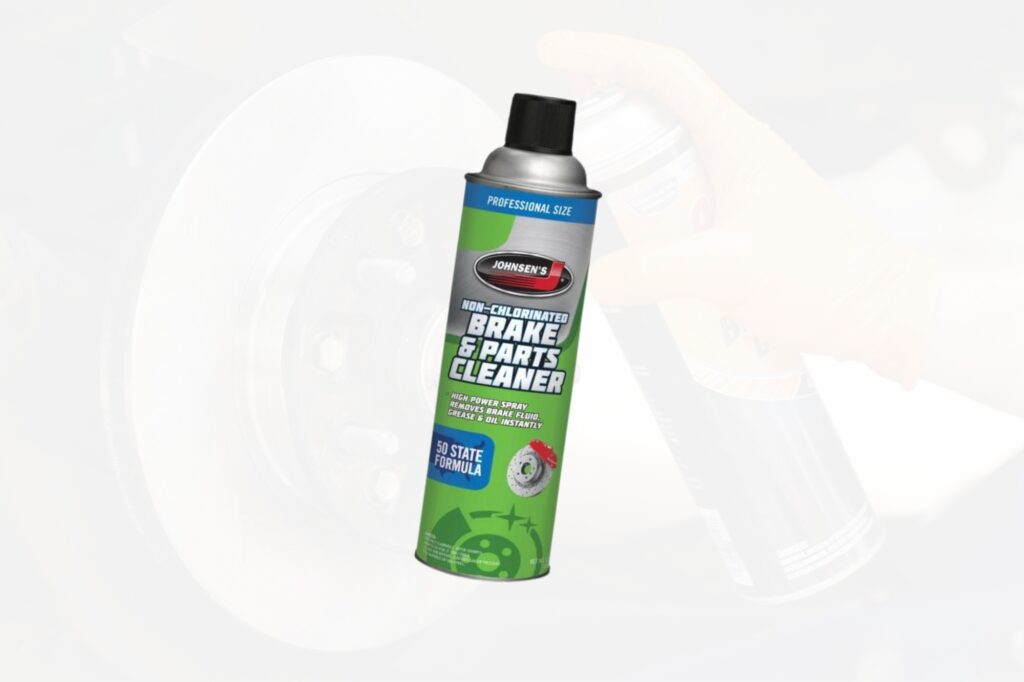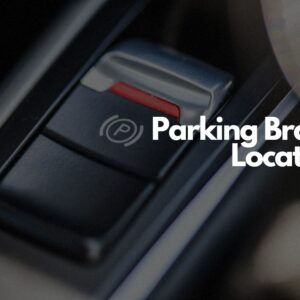Oil, dirt, grime, and other contaminants can build up on brake parts, affecting their performance and reducing their lifespan over time. Fortunately, brake cleaning goes a long way in preventing that.
Sure, you can use household solutions, like white vinegar and alcohol to get the job done. But if you want to deep clean your brakes, using specialized chlorinated or non-chlorinated brake cleaners is the better option.
To help you find out which brake cleaner works best for you, let’s look into their pros and cons.
What Are Chlorinated Brake Cleaners?
Chlorinated brake cleaners contain chlorinated atoms, which is what makes them so effective at being a solvent.
These cleaners are incredibly toxic and harsh on the environment to the point that their use is regulated and banned (Califonia) in some states. Despite that, they’re among the most widely used brake cleaners to date.
Advantages
While their dangerous toxicity is undeniable, chlorinated brake cleaners remain the go-to cleaning solution of many auto shops and car owners. Here’s why.
Extremely Potent
Chlorinated brake cleaners break down contaminants quickly. You won’t have to wait long or scrub hard to get rid of dirt and grime from your brakes.
More Affordable Than Other Cleaners
You’ll save more money when you choose chlorinated brake cleaners over their non-chlorinated counterparts. Not only are they cheaper but you also don’t have to use much to clear your brakes. That means a bottle can last you a long time.

Disadvantages
If you’re considering using a chlorinated brake cleaner, make sure you know its drawbacks.
Harmful to the Environment
Chlorinated brake cleaners are composed of volatile organic compounds (VOCs), such as Methylene Chloride (MeCl), Trichloroethylene (TCE), and Perchloroethylene (Perc). They’re highly volatile and bad for the environment.
When VOCs come in contact with carbon monoxide and nitrogen oxides in the air, they form ground-level smog, which can make plants sick. These compounds also contribute to acid rain and global warming.
Dangerous to Work With
One of the biggest downsides that come with using chlorinated brake cleaners is how dangerous they are. Breathing in vapors has the potential to cause long-term lung complications, such as cancer.
Some side effects of VOC exposure include irritation (eye, nose, and throat), headaches, loss of coordination, and nausea. It could also damage the kidneys, liver, and central nervous system. So wear protective equipment and be careful when using chlorinated brake cleaners.
Once you’ve used up the cleaner, you can’t just throw it in the trash. You must handle and dispose of it carefully as hazardous waste.
Can Damage the Brake System
Chlorinated brake cleaners are so effective at breaking down contaminants that they can wind up breaking down your brake system too. The harsh chemicals can degrade seals and rubber hoses over time.
If you plan on using chlorinated brake cleaners, avoid cleaning your vehicle’s brake system too frequently.
What Are Non-Chlorinated Brake Cleaners?

Non-chlorinated brake cleaners don’t contain chlorinated atoms. They aren’t as widely used as chlorinate brake cleaners, but they’re better for the environment and are less likely to damage your vehicle.
Advantages
Many people prefer non-chlorinated brake cleaners over chlorinated variants because they offer the following benefits.
Safer to Work With
Non-chlorinated brake cleaners are significantly less harmful to the eyes, skin, and lungs compared to chlorinated variants. Still, this doesn’t mean they’re completely harmless. They’re just as likely to cause long-term health complications if you’re often exposed to them.
Better for the Environment
Non-chlorinated brake cleaners also have less VOC emissions than chlorinated brake cleaners, making them less damaging to the environment. They’re also not as toxic or flammable, which means you can get rid of them normally.
Doesn’t Damage the Brake System
Because non-chlorinated brake cleaners aren’t as potent and harsh as chlorinated brake cleaners, they’re less likely to degrade your vehicle’s brake system even with frequent use.
Disadvantages
Here are some downsides that come with using non-chlorinated brake cleaners.
Not as Potent
Unfortunately, because non-chlorinated brake cleaners are not as potent as the other variants, they’re not as effective at breaking down the gunk in brakes. It takes a lot more time for them to soak in and dissolve contaminants.
You’ll need to put in more time and effort to remove unwanted stains, deposits, and other buildup in your brake system.
Can Be Costly
Because non-chlorinated brake cleaners are made with chemicals that are better for the environment, they wind up costing most per ounce than chlorinated brake cleaners.
If you have a tight budget, the higher cost can be a problem because you’ll need to use more of the cleaner to get rid of dirt and grime. More applications will be necessary to do the job, racking up costs quickly.
Non-Chlorinated Brake Cleaner vs. Chlorinated Brake Cleaner: What’s Best for You?

There’s no clear, singular answer when it comes to there being a “better” brake cleaner than the other. Many factors come into play when it comes to finding the right brake cleaner for you. Your answers to the following questions can help you decide:
- Are you fine with working with toxic chemicals?
- How frequently do you clean your vehicle’s brake system?
- How much do you want to spend on brake cleaners?
- How much value do you place on being eco-friendly?
If you’re the sort of driver who has to clean their vehicle’s brakes often, it might be safer and more sustainable to use non-chlorinated brake cleaners. On the flip side, chlorinated brake cleaners are harsher and more hazardous but more efficient at dissolving dirt and grime.
Whichever cleaner you pick, make sure you take safety measures before using it and handle it properly to avoid mishaps as you work.
Where to Get High-Quality Brake Cleaners for Your Vehicle
Storing brake cleaners in your garage could come in handy one day. If you plan to do so, make sure you get a high-quality cleaner that’s sure to get the job done. Thankfully, CarParts.com has you covered.
Shop from the comfort of your own home and checkout securely in a matter of minutes. You can also call us anytime using our toll-free hotline, and our team of customer service representatives will be ready to assist you. If you place your order before 12 noon, you can expect it to arrive at your doorstep within two business days, thanks to our strategically located warehouses across the country.
All our products come with a lifetime replacement and low-price guarantee to help you get the best value for your money. Get a quality brake cleaner without going over budget. Shop now at CarParts.com!
Any information provided on this Website is for informational purposes only and is not intended to replace consultation with a professional mechanic. The accuracy and timeliness of the information may change from the time of publication.































